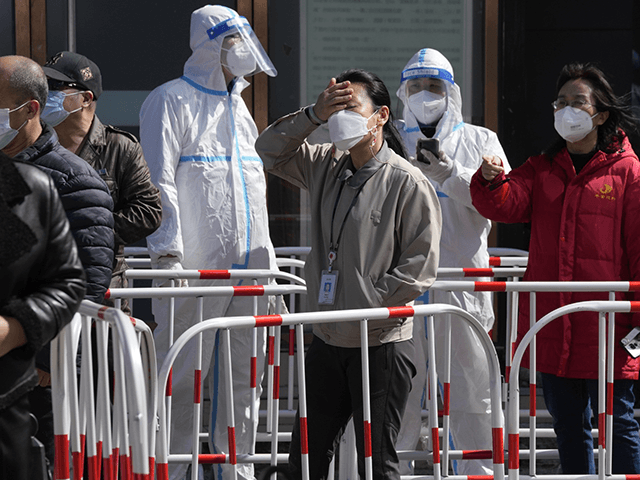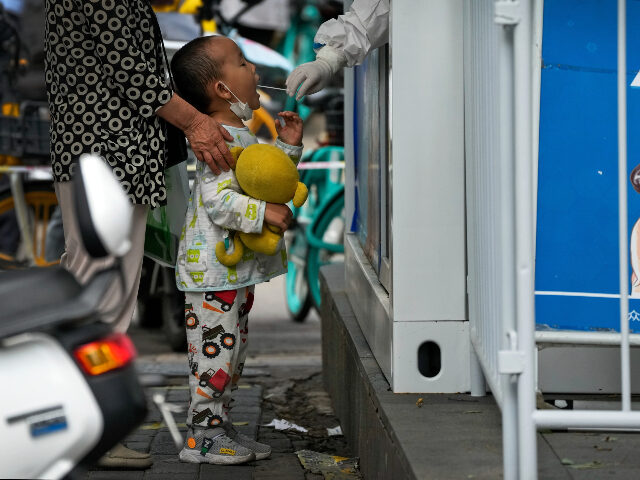The draft budget produced by this year’s session of China’s rubber-stamp legislature, the National People’s Congress (NPC), includes $24.6 billion for “coronavirus control” — a rather extravagant sum given that Beijing suddenly dropped all of its “zero Covid” lockdown policies in December.
The Chinese Communist government frequently claims to have “decisively defeated” or eliminated coronavirus after a final massive wave of infections at the beginning of 2023.
According to a draft budget seen by the South China Morning Post (SCMP), the $24.6 billion “would go towards subsidizing local governments, especially those at the county-level, for Covid-19 prevention and control activities.”
These subsidies would allegedly pay for the salaries of medical workers, vaccinations, and the extended treatment of people who have not recovered from coronavirus infections yet. Outgoing Premier Li Keqiang said on Sunday there would also be funding for “upgraded” coronavirus vaccines and other treatments.
“Reports from 22 provinces and cities showed they had spent over 420 billion yuan (about $61 billion) on zero-Covid measures, including mass testing, quarantine, contact tracing and vaccination drives,” the SCMP said.

Workers line up for COVID tests outside an office building on Monday, March 14, 2022, in Beijing. Chinese authorities reported more than 1,300 locally transmitted cases of COVID-19 across dozens of mainland cities Monday as the fast-spreading variant commonly known as “stealth omicron” fuels China’s biggest outbreak in two years. (AP Photo/Ng Han Guan)
Much of that budget hangover was incurred during the citywide lockdowns and mass testing drives that were typical of the “zero Covid” approach. The SCMP noted that while the previous two NPCs provided estimates of how far “pandemic prevention and controls” pushed the Chinese central government over its budget in the preceding year, the new draft budget included no such estimate — but some local governments have reported staggering expenses for the final year of “zero-Covid” lockdowns, such as the $10 billion overrun in the industrial province of Guangdong alone.
Chinese state media in January pegged Guangdong’s total spending on pandemic prevention and control since 2020 at over $22 billion and suggested these soaring costs might have been a factor in Chinese leadership deciding to scuttle its much-touted and seemingly permanent zero Covid approach — perhaps as much of a factor as the unexpectedly large and energetic nationwide protests that erupted in December against the lockdowns.
China’s national budget deficit hit a record $1.1 trillion in 2022, largely due to the costs and lost revenue imposed by lockdown policies. The 2022 deficit was considerably worse than the previous record-setter in 2020 when the coronavirus outbreak saddled China with its lowest economic growth in decades.
Local governments were hit even harder by 2022’s lockdown expenses because much of their revenue comes from taxes on land sales, and China has been dealing with a major real estate crisis since 2021.
China’s manufacturing sector reported a surge in activity last month, a recovery that Communist Party leadership would probably be reluctant to crush with more lockdowns. International financial analysts said they were optimistic about growth in the coming year, but cautioned the damage from zero-Covid would take a while to clean up as it damaged so many revenue-generating enterprises and left local governments with huge piles of unpaid bills.

COMMENTS
Please let us know if you're having issues with commenting.